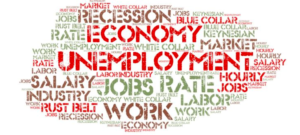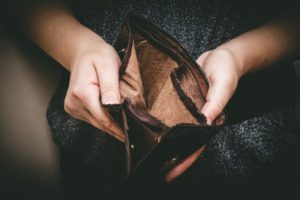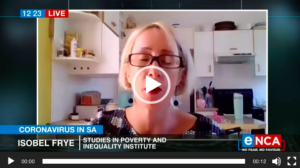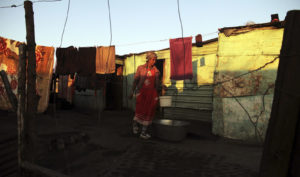
Op-Ed: I lost my father, then my job, as Covid-19 fuelled youth unemployment
As a young South African, I am faced with the burden of rebuilding our country.

As a young South African, I am faced with the burden of rebuilding our country.

Our economy has been in a recession for the past 5 years, jobs have become scarce and free funds to support local businesses end up tied with the basic needs that people have on a month-to-month basis.

Studies in Poverty and Inequality Institute Director, Isobel Frye, speaks to Mandy Wiener from 702 during the Midday Report about the current looting, rising poverty rates and lack of South African government’s commitment to a Basic Income Grant, which will contribute to a decent standard of living for all.

Social justice activists have tried repeatedly to present this data to policymakers over growing inequalities and to how that policy choices are not reflective of the realities and needs on the ground. But still government chose not to listen, writes Isobel Frye.

PRESS RELEASE FOR IMMEDIATE RELEASE FRIDAY 16 JULY 2021 40 CIVIL SOCIETY ORGANISATIONS: ‘WE WANT R1,268 FOR ALL NOW’ SOUTH AFRICA: Today,

Women in South Africa remain the most vulnerable and are experiencing higher rates of unemployment and hunger during the COVID-19 pandemic

Poverty is to blame for the skyrocketing school dropouts in South Africa. Can a decent standard of living address this issue?

Press Release Johannesburg, July 8, 2021 – South Africa is spiralling into an unbearable rate of poverty which our leadership can no longer ignore, suggest
A Webinar on a decent standard of living and the importance of multidimensional poverty measurement in the Covid-19 recovery of South Africa.
South Africa went into lockdown at midnight 26 March 2020, a decision that built on a global consensus of what it takes to slow the
Poor and vulnerable South Africans, including domestic, farm, service sector, and self-employed workers as well as children from poor families, face a double shock.
Dr Wiseman Magasela – Address to the Decent Standard of Living Colloquium in October 2019 in Tshwane CHALLENGES AND CONTESTATIONS: BUILDING AN INCLUSIVE SOCIETY
Here’s the transcription of Dr Philip Alston’s video message to the Fourth Decent Standard of Living Colloquium in October 2019. __________ I am very grateful
South Africa is characterised by deep poverty and persistent inequality. While the country has made some progress in reducing poverty in the post-apartheid period, it
In South Africa, each person has a constitutional right to live a life of dignity, a right to access to food and shelter, and basic
The 4th annual Decent Standard of Living (DSL) Colloquium was held in Pretoria on the 31st of October 2019. Addressing an attentive audience Dr Philip
By Dr Gemma Wright and Jabulani Jele Policymakers are faced with many urgent and competing challenges with very limited resources. They also have to balance
This one goes out to the trade unionists and anyone else who understands that what few gains the working class have made, they have made
By Dr Gemma Wright & Jabulani Jele We now have a socially derived definition of a decent standard of living in South Africa. Dignity
Government has struggled for many years to develop the right policies to beat poverty. We explained what the decent standard of living (DSL) is –
In among all the numbers, we have lost sight of dignity, and our value and worth as human beings. Poverty and inequality are the greatest
Poverty is political. We need a political solution for a political problem.
Is this what a decent life looks like? It’s Sunday morning and your family is getting ready to go to church. Mother asks you to
It is remarkable that South Africa’s social security laws are still based on the pre-1994 Social Assistance Act, with tweaks. These laws were aimed at the well-being of white South Africans in the context of virtual full employment for white men. They do not accommodate the lifelong income poverty of millions marginalised from decent work.